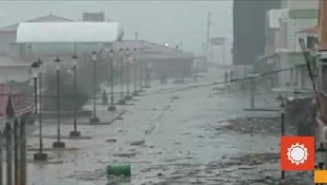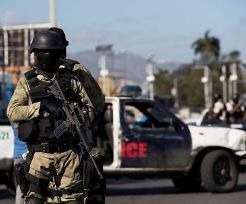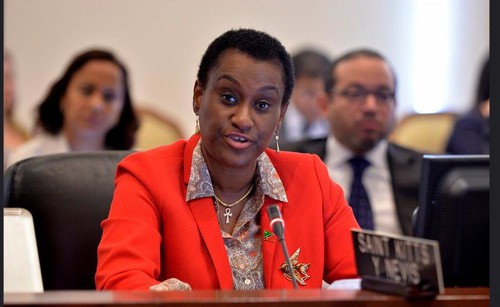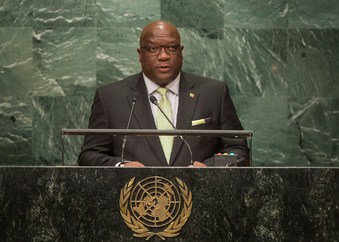Action 2030 Jamaica
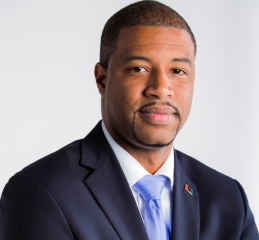
by David Mullings
Jamaica celebrated 58 years of independence from Great Britain this past August 6th. Even though our National Anthem says “Give us vision lest we perish” and the Vision 2030 Jamaica National Development Plan was published in 2009, vision is the least of my concerns. “Action, not a bag a mout’” as Nadine Sutherland famously sang is what really concerns me.
Jamaica has been taking action under different political administrations and that has been welcome. However, there is much more left to be done and I sincerely believe that Jamaica can rival Singapore by 2050 as a logistics and transshipment hub, financial center and nearshoring destination.
For too long we have been hearing about “Brand Jamaica” but no one has ever explained what it means and what it represents. More importantly, a brand is what other people think of it, not what you think of your own brand. You can try to position it but it will only reflect truths, not hype.
“Brand Jamaica” to some people means Sun, Sea and Sand. To others it means friendly people and Reggae music. There are of course negatives to the brand.
Jamaica is like any country; good and bad mixed in. However, when we choose to be bad, we want to excel at it just like we excel at the good things. It must be in our DNA to aim to be the best at everything we do and standout, even if it is negative.
Why am I so bullish about Jamaica’s future?
It is because I have studied our past and believe that we can reclaim the position the country once held, an indispensable part of global trade owing to the prime location.
Port Royal and Boston were the two largest English towns in the Western Hemisphere in the 1600’s and among the wealthiest. Jamaica was one of the first British colonies with an official post office, opening in October of 1671. It was among the first colonies to have a railway line, opening in 1845 (USA and Canada had railways open in 1827 and 1836).
The Boston Fruit Company (later the United Fruit Company) made Portland famous thanks to the banana boats (Boston, the home of jerk, supposedly got its name from the US Boston).
The Titchfield Hotel was one of the largest hotels anywhere in 1905 with 400 rooms. Wealthy people who were spending one and two months in Jamaica while the banana boat came back put their children in Titchfield High.
Errol Flynn made Port Antonio famous. The suave American actor who played swashbuckling heroes would be seen walking barefoot along the road to Frenchman’s Cove with friends like Sophia Loren. Royalty from Arab countries would go there to get away from the spotlight.
At one point, Jamaica exported 20% of all the world’s Sugar and was the first in the Western Hemisphere to commercialize the export of Banana.
Jamaica has the 7th largest naturally-protected harbor in the world, comparable to Singapore’s harbor, is already one of the few ports accepting Post-Panamax ships in the hemisphere, the first stop when you exit the Panama Canal, has open skies agreements with dozens of countries that would allow an international traveler to bypass Miami and not need a US Visa when traveling between South America and Europe if a suitable airport was in place.
Vernamfield
Did you know that Vernamfield, the former WWII U.S. Air Force base in Clarendon has 5 runways and the longest one can land the largest aircraft in the world? Or that Vernamfield is larger than Manhattan? Picture rail linkage all the way to the Port of Kingston, parts coming from around the world and final products being assembled in Jamaica then shipped to final destination countries in our hemisphere instead of companies being heavily dependent on Just-In-Time inventory coming from China, Vietnam and other Southeast Asian countries.
Intel is already in Costa Rica and that investment brought their suppliers to the country. Jamaica is already moving up the value chain from call centers to more backoffice work in the global process outsourcing industry.
Jamaican Culture
These are great opportunities but the most overlooked is Jamaican culture. Bob Marley, Jimmy Cliff, Marcia Griffiths, Shaggy, Sean Paul and many more are global icons. They have been major brand ambassadors for this little island that consistently punches above its weight. Jamaica should be generating more foreign exchange from the Creative Arts than any other industry but that is not currently the case. We do not even respect our own culture the way that outsiders do.
Attitudes will have to change, priorities will need to shift and the culture will need to be put on full display with the required investments to meet global standards.
Entertainment and Film Industry
Music is only one part but Jamaica is famous as a film destination even though it offers no film tax credits. When Tom Cruise wanted to have a secret island getaway in his film with Cameron Diaz, Knight and Day, he chose Jamaica, Frenchman’s Cove to be exact, to be the destination because he fell in love when he shot Risky Business in Jamaica many years ago.
This comes as no surprise to those of us who know that Ian Fleming wrote all of us James Bond novels in at his home Goldeneye in Jamaica and even named his famous secret agent after the author of Birds of the West Indies, a book which makes a cameo in both Goldeneye and Die Another Day. The first film in the series, Dr. No, was mainly filmed in Jamaica, Live and Let Die used Jamaica to represent the fictitious island of San Monique and the famous crocodile farm scene with Roger Moore escaping certain death was filmed in Falmouth. It is no wonder that the producers of the latest Bond film, No Time To Die, returned to Bond’s home to film the 25th entry. But did you know that Walt Disney’s classic 20,000 Leagues Under The Sea used Booby Cay, a small island off the coast of Negril, as a filming location?
Jamaica has exceeded the expectations of many people but it has still not yet truly tapped into its potential and it needs all hands on deck in order to play its true part “in advancing the welfare of the whole human race.”

David P.A. Mullings is the Founder, Chairman and CEO of Blue Mahoe Capital Partners, a private investment firm investing in the Caribbean and was the first Future Leaders Representative for the USA on the Jamaica Diaspora Advisory Board.


